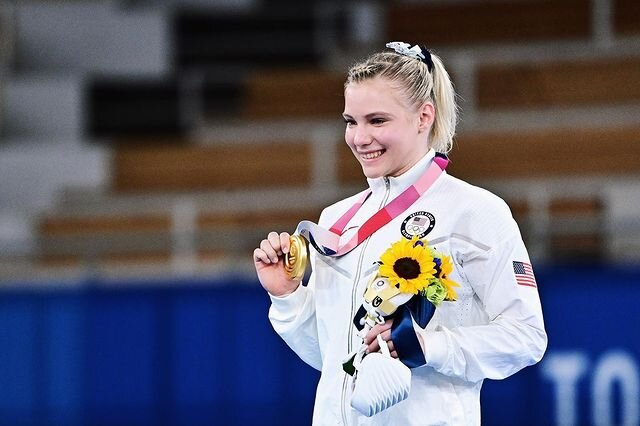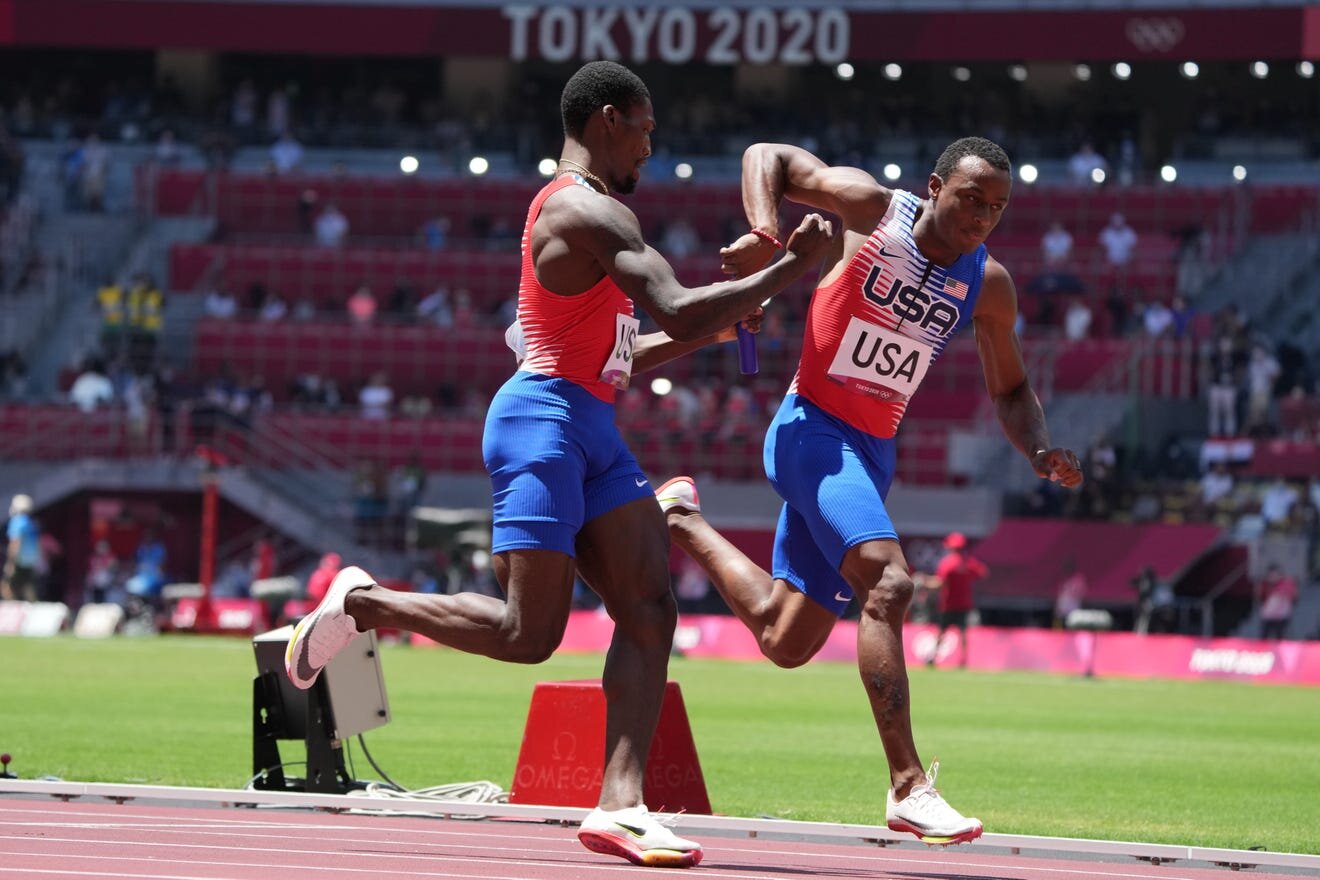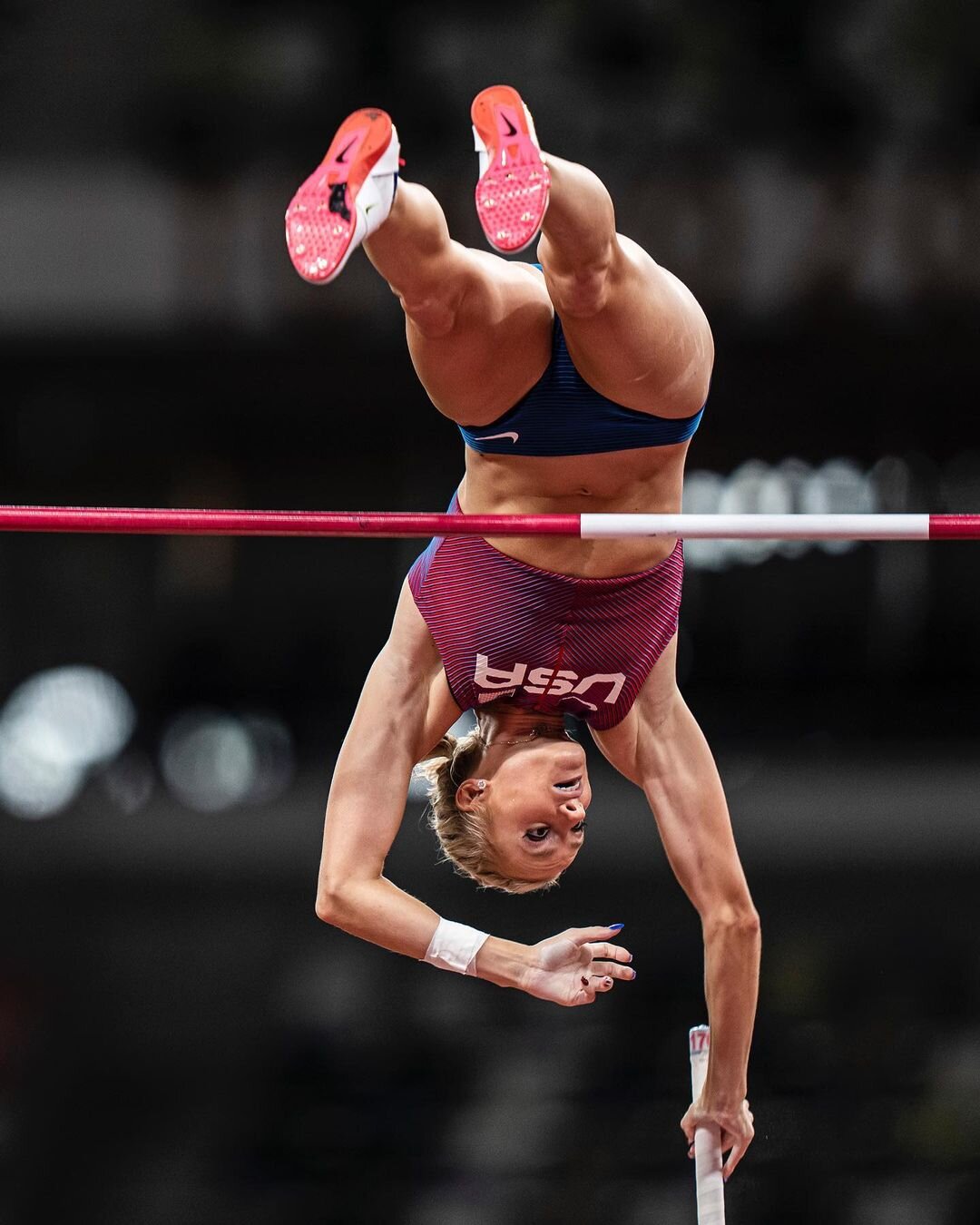Earlier this month, the Tokyo Olympics provided a welcome distraction from some of the other pressing global issues that have dominated our attention for what seems like an eternity!
I couldn’t help but notice the stark leadership lessons that came from watching elite athletes striving to make their long-term vision a reality.
These opportunities don’t come around often, so being on your game (on the day) is all-important. For these athletes and coaches, it’s a much less forgiving environment than most of us operate in.
So what can we learn about strategy? About delivering in the ‘clutch’ moments when performing under extreme pressure? And what is the surprising lesson on diversity?
These seven leadership lessons are sure to give us all pause for thought.
LEADERSHIP LESSONS FROM TOKYO
EPISODE #155 TRANSCRIPT
Earlier this month, the Tokyo Olympics provided a welcome distraction from some of the other pressing global issues that have dominated our attention for what seems like an eternity.
I managed to catch a few events and read some of the commentary that appeared in the newsfeeds and I couldn't help but see the stark leadership lessons that came from watching athletes from all over the world, striving to make their long-term vision a reality. These opportunities come around only rarely, so being on your game on the day is all important. For these athletes and coaches, it's a much less forgiving environment than most of us operate in.
I'm just going to give you the seven leadership lessons that I took out of my limited viewing of the Olympic spectacle.
When you’re outgunned, be bold
American, Courtney Frerichs' incredibly brave front running in the women's 3000 metre steeplechase to win the silver medal demonstrated how to overachieve against fearsome competition.
This event has been dominated by the African women forever. It's an incredibly tough event where large hurdles and a water jump have to be cleared on each lap. The winner generally completes the race in around nine minutes, which is three minutes per kilometre, or just over four minutes forty-five per mile.
If you're not automatically impressed, throw your shorts and runners on and try running that pace for just 100 metres or 200 metres. You'll realise really quickly how fast that is on the flat, let alone having to jump over obstacles on the way through.
Tactically, Frerichs realised that she would be no match for the Africans in the last few hundred metres as they would all out sprint her. If she was to have any chance at all, she'd have to take the race to them.
About halfway through, she stepped on the gas and went to the lead. A lap later, she had stretched out the lead pack and dropped off some of the top athletes in the world, as they struggled to keep her pace. In the end, it came down to Frerichs and the eventual winner Peruth Chemutai from Uganda.
Frerichs had given everything, and narrowly crossed the line ahead of a fast closing field. But her boldness secured a result that was way beyond the expectations that anyone held for her.
Image: INSTAGRAM @courtneyfrerichs
So what leadership lesson can we take away?
Boldness, amidst great uncertainty, can create competitive advantage.
If you make the running, instead of following the leader, you're less likely to miss out on the opportunities that can potentially create the most value.
Know when you aren't on your game
Simone Biles is one of the greatest female gymnast of all time. She withdrew from competition in Tokyo because she felt as though she wasn't mentally on her game and didn't have the right frame of mind to compete. This is a lesson for all of us.
Regardless of the expectations of those around you, it's critical to listen to your inner voice and have the self-awareness to know when you need to push the chair back from the table and take 10 deep breaths.
This must've been incredibly difficult for Biles to admit that she wasn't able to live up to the expectations of a nation, which was so high, that even a silver medal would have felt strangely disappointing. This would have taken real courage to face. And in the context of business, many executives resist this doggedly.
Image: INSTAGRAM @simonebiles
I'm going to cheat here and give you two leadership takeaways.
The first is know yourself. Self-awareness is one of the most valuable commodities for a leader. Without a strong level of self-awareness, the weight of rationalisation, which is believing your own bullshit, can lead to adverse outcomes for both you and your people. Simone Biles not only knew herself, but she was mature enough to take appropriate action in the face of that awareness.
The second lesson is don't play one season too many. I did an episode on this a while ago: Episode #99: You need to know when it's time to go.
How many athletes do we see play one season too many? All leaders, no matter how good they are, lose effectiveness over time. People just become familiar with your messages. They know your strengths and weaknesses, and they're confident in what they can and can't get away with. Being mature and selfless enough to realise when you've reached the point of diminishing returns for your team and the organisation is incredibly difficult, but it's best for all involved.
Intrinsic motivation will always be stronger
One of the remarkable elements of the Tokyo Olympics was that it played out in stadiums that were largely empty. Without the crowds to cheer on their favourites, we saw plenty of upsets in all sports.
Many athletes rely upon the crowd to help them find that little bit extra. To use the old sporting cliche, it often comes down to “who wants it more”.
The ability to perform in all conditions and contexts is the sign of true resilience. But motivation has to come from within. If you're seeking external validation, to enable your performance, this can be a curse as much as a blessing. If we think back to Simone Biles, she had to learn the lesson the hard way that you are more than your results.
She was quoted as saying:
Results are incredibly important, if you've ever listened to an episode of this podcast, but, if your self-worth relies holy on external validation, you'll find it incredibly difficult to handle the setbacks and failures that inevitably come your way in business. Adversity brings resilience and insight, which in and of itself, is incredibly valuable.
Build talent from the ground up
The US women's team performed exceptionally well, winning 66 medals in Tokyo. The year on year improvements over the last several Olympics have been exceptional. This success demonstrates what can happen when depth of talent is built at the lowest levels of a sport.
The Wall Street Journal attributes this over performance in part to the federal Title IX law, the bast discrimination in schools and colleges, which has seen an explosive growth in women's sport over the last four plus decades. The lesson is that leaders need to pay close attention to building depth and capability.
It's the talent pipeline. We saw this explicitly when superstar Simone Biles pulled out of her gymnastics event only to make way for Jade Carey, her teammate, to step in and win the gold medal.
Image: INSTAGRAM @jadecarey
As a business leader, talent has to be identified, harnessed and developed from the ground up, to build depth and capability throughout an organisation. That's why leaders have to learn to manage the talent pipeline, not just rely on one individual who has prodigious talent.
Teamwork trumps individual brilliance
Despite the incredible talent assembled in the team, the US men's 4x100 metre track relay, bowed out in Round One. In a relay, it's not about who's fastest, but rather, how fast the baton moves from the starting gun to the finish line. You can have the four fastest athletes on the planet, on the track and in your team, but, if you lose even fractions of a second in those crucial baton passes, a well-drilled team with slower athletes will beat you on most days.
Sprinting great, Carl Lewis, said to the team after they crashed out of the event, "The passing system is wrong. Athletes running the wrong legs, and it was clear that there was no leadership".
Image via KIRBY LEE - USA TODAY SPORTS
The leadership lesson? Well often, even with the most talented people on your team, unless you have the ability to put all the ingredients together, high-performance will allude you. You need to pay attention to how you get the best out of every player, not just your stars.
This also reminds me of another very old episode I did, Episode #40: Building a Balanced Team. In the words of NFL analyst, Greg Rosenthal, "Every season has a different shape. Every game is different, but eventually, you'll need every aspect of the roster to finish the season as champions". Harnessing the latent value that sits undiscovered in your team is difficult, but it's an essential criterion on the road to high performance.
The clutch moments count the most
In the women's pole vault, eventual gold medal winner American, Katie Nageotte, was almost eliminated without recording a height. Her first two attempts at the opening height of 4.50m, were unsuccessful.
Think about this. She had one jump remaining to stay in the competition. Imagine the pressure. This was a height that no doubt she's cleared routinely a hundred times in training. But this was the Olympic final, and her four years of preparation came down to just one more trip down the runway.
She breathed a visible sign of relief when she cleared the height on her third and final attempt. Nageotte went on to clear 4.90m to win the gold. That's almost 16 inches higher, than the height she nearly faulted on. Composure like this under pressure is the mark of a true champion. Every leader should aspire to this level of grace under pressure.
Image VIA INSTAGRAM: @ktnago13
Diversity and inclusion iN the Paralympics
We talk a lot about the Olympics and we tend to forget about the Paralympics, showcasing the world's best athletes with a disability.
I'm not highlighting this to make you feel bad. To tell you the truth, I hadn't even thought about the Paralympics until Emma mentioned it to me.
The Paralympics is a masterclass in courage and dedication to overcoming obstacles.
But how many of us will be glued to our screens when the Paralympics commences next week? Can we even find a broadcast to watch? If you want to see why diversity and inclusion is a good idea, then get onto it. The turning point for interest in the Paralympics seems to have come about 10 years ago when ex-Olympic gold medalist, member of the House of Lords and corporate executive Sebastian Coe, was chairman of the London organising committee for the Olympic games.
I had the pleasure of meeting Seb a few years ago, over an intimate lunch and I can tell you that he absolutely has the presence and the level of gravitas that you would expect from someone in his position. But in the lead up to the games in 2012, he rarely mentioned the event without referring to the Olympics and the Paralympics in the same breath. And this apparently did wonders for the visibility of that sport.
The Paralympics is a vital ground, upon which we change people's views, on disability. If you want to check this out further, there's a great YouTube video that was produced by the Great Britain Paralympics team in the lead up to the Rio games in 2016, called 'We're the Superhumans'.
If you don't shed a little tear watching this I'd be really surprised. It is incredibly inspiring. And as I watched it for the third time, I found myself asking the question, "What's my excuse?"
The athletes in this video have overcome so much adversity to become world-class athletes. And have no doubt faced obstacles that we can't even imagine.
As leaders, we simply need to be open to the value and impact that can be harnessed, by having incredibly capable people with disabilities on our teams. If we're serious about diversity, I mean, beyond the statistics in our company's annual report, we all need to think about this a little more deeply.
There’s so much we can learn from watching the best athletes in the world go about their day jobs. Grace under pressure, resilience, strategy, talent management, self-awareness, teamwork, and the power of inclusion.
Sport is a metaphor for business and for life. That's why sometimes it's good to pause just briefly and see how we might apply the lessons from those humans who are truly at the top of their game.
RESOURCES AND RELATED TOPICS:
Pre-order the NO BULLSH!T LEADERSHIP BOOK - Here
Explore other podcast episodes - Here
Take our FREE Level Up Leadership Masterclass - Start now
Leadership Beyond the Theory- Learn More
YOUR SUPPORT MATTERS
Here’s how you can make a difference:
Subscribe to the No Bullsh!t Leadership podcast
Leave us a review on Apple Podcasts
Repost this episode to your social media
Share your favourite episodes with your leadership network
Tag us in your next post and use the hashtag #nobsleadership








